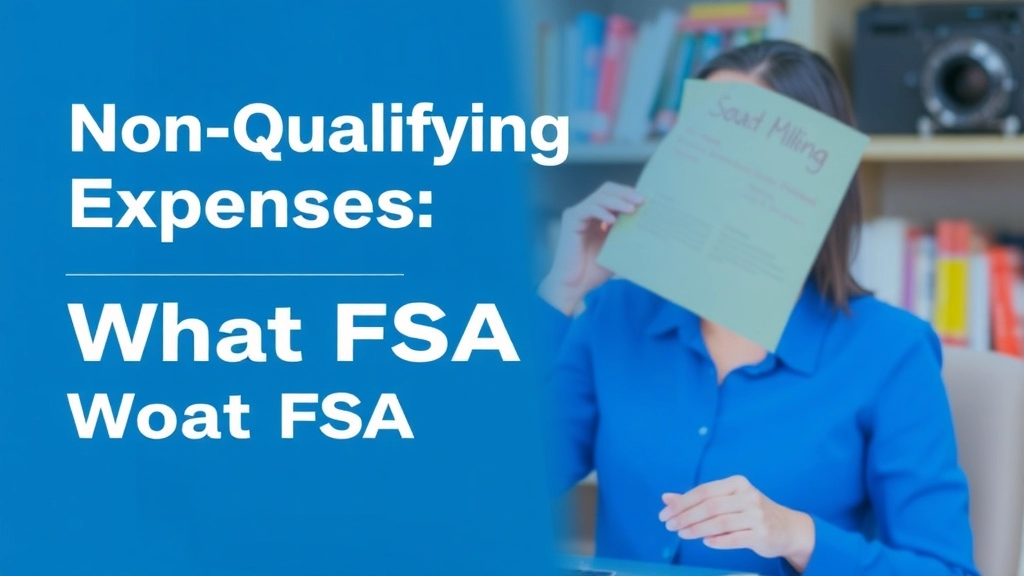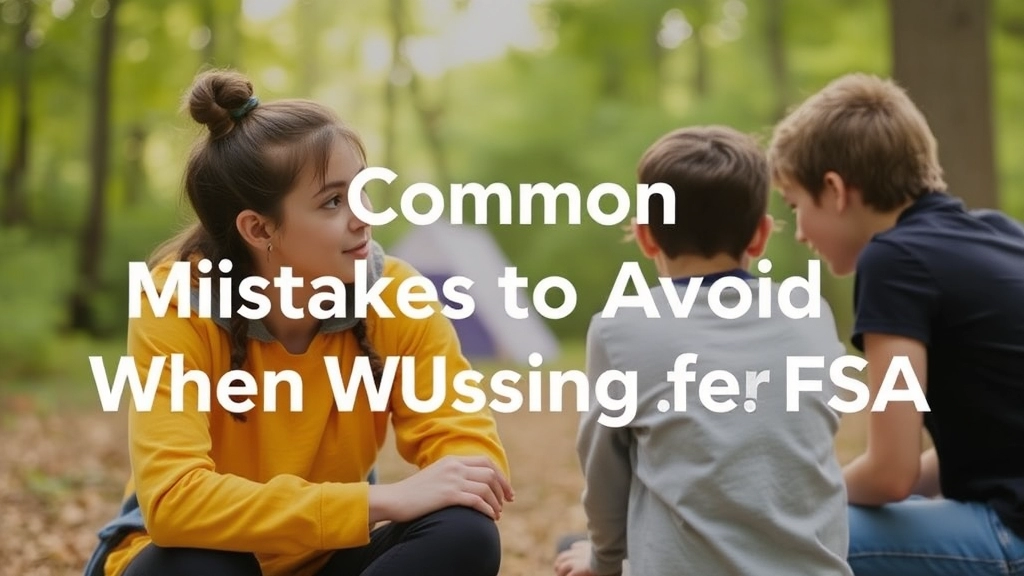Maximizing Savings for Summer Camps with a Dependent Care FSA
Are you a parent looking to maximize your savings while ensuring your kids have a fun-filled summer? You’re not alone. Many parents grapple with the complexities of using a Dependent Care Flexible Spending Account (FSA) to cover summer camp expenses. This article aims to demystify the process, offering a step-by-step guide to help you navigate the ins and outs of FSAs, from understanding eligibility criteria to claiming your expenses efficiently.
We’ll delve into what qualifies as FSA-eligible summer day camps, highlight common mistakes to avoid, and compare FSAs with childcare tax credits to help you make the best financial decision. Whether you’re new to FSAs or looking to optimize your contributions, this comprehensive guide will equip you with the knowledge and strategies to make the most out of your Dependent Care FSA, ensuring a stress-free and financially savvy summer for your family.
Understanding Dependent Care FSAs
Ever wonder if you can use your Dependent Care Flexible Spending Account (FSA) to cover summer day camps? You’re not alone. Many parents grapple with how to make the most of their FSAs, especially when it comes to summer care for their kids. Let’s break it down, step by step.
What is a Dependent Care FSA?
A Dependent Care FSA is a pre-tax benefit account that helps you pay for eligible dependent care services. This includes costs associated with caring for children under 13, a disabled spouse, or a dependent parent while you work, look for work, or attend school full-time.
Why Should You Care?
- Tax Savings: Contributions to a Dependent Care FSA are made before taxes, which means you can save a significant amount on your taxable income.
- Convenience: It’s a structured way to budget for your dependent care expenses throughout the year.
How Does It Work?
Here’s the gist:
- Enroll: During your employer’s open enrollment period, decide how much you want to contribute to your Dependent Care FSA for the year.
- Contribute: The chosen amount is deducted from your paycheck before taxes.
- Spend: Use the funds to pay for eligible dependent care expenses.
- Reimburse: Submit claims to get reimbursed for those expenses.
Real Questions Parents Ask
- Can I use my Dependent Care FSA for summer camps? Yes, but only for day camps. Overnight camps are a no-go.
- What about sports camps? If they primarily provide care while you work, they could qualify.
- What happens if I don’t use all the money? Use it or lose it. Any unused funds typically don’t roll over to the next year.
Key Benefits
- Financial Relief: Reduces the financial burden of childcare.
- Flexibility: Covers a wide range of dependent care services.
Real-World Example
Imagine you’re a working parent with two kids. You sign them up for a summer day camp that costs £3,000. By using your Dependent Care FSA, you can save on taxes, making that £3,000 feel a lot less painful.
Internal Linking Opportunities
Quick Tips
- Plan Ahead: Estimate your annual dependent care costs to decide how much to contribute.
- Keep Receipts: Always keep documentation for expenses you plan to claim.
- Check Eligibility: Not all camps qualify. Make sure your chosen camp meets FSA requirements.
By understanding how a Dependent Care FSA works, you can make informed decisions and maximize your savings. Whether it’s for summer day camps or other dependent care needs, this account is a valuable tool for managing your expenses.
Eligibility Criteria for Summer Day Camps Under FSA

Ever wondered if your kid’s summer day camp can be paid for with your FSA? You’re not alone.
Here’s the deal:
Yes, summer day camps can be FSA-eligible. But, there are some rules you need to know.
What Makes a Summer Day Camp FSA-Eligible?
- Day Camp, Not Overnight:
- Key Point: Only day camps qualify. Overnight camps? No-go.
- Why: FSAs are for dependent care while you work. Overnight camps don’t fit the bill.
- Work-Related Care:
- Key Point: The camp must be necessary for you (and your spouse) to work or look for work.
- Why: The IRS wants to make sure the expense is directly tied to your ability to earn.
- Age of the Child:
- Key Point: The child must be under 13 or incapable of self-care.
- Why: FSAs are designed to help with dependent care, not just any child-related expense.
- Provider Requirements:
- Key Point: The camp must comply with state and local laws.
- Why: Only legitimate, regulated providers are eligible.
Examples to Clear Things Up:
- Example 1: Your 10-year-old attends a local day camp while you’re at work. FSA-eligible.
- Example 2: You send your 12-year-old to a week-long overnight camp. Not FSA-eligible.
- Example 3: Your 8-year-old goes to a day camp, but you’re a stay-at-home parent. Not FSA-eligible.
Quick Tips:
- Double-Check: Always verify with your FSA provider. Rules can vary.
- Keep Receipts: You’ll need proof of payment and camp details for reimbursement.
- Plan Ahead: Know the rules before you sign up for any camp.
Why This Matters:
Understanding these criteria can save you a ton of money and hassle. No one wants to find out they’ve spent a fortune on a non-eligible camp.
Final Thought:
The keyword here is “FSA-eligible summer day camps.” Get it right, and you’ll make the most of your FSA funds.
Want more tips on FSAs and saving money on childcare? Check out our sections on Qualifying Expenses for FSA Reimbursement and Common Mistakes to Avoid When Using FSA for Camps.
Navigating FSAs doesn’t have to be a headache. Let’s make it work for you.
Qualifying Expenses for FSA Reimbursement
Ever wondered if you can use your Dependent Care FSA for summer day camps? It’s a common question and a real concern for many parents. Let’s break it down, so you know exactly what’s covered and what’s not.
What Qualifies for FSA Reimbursement?
When it comes to summer day camps, not everything is straightforward. But here’s the good news: summer day camps often qualify for FSA reimbursement. This can be a game-changer for parents looking to save some cash.
Here’s what typically qualifies:
- Day Camps Only: Overnight camps are a no-go. Only day camps that provide care while you’re working or looking for work qualify.
- Child’s Age: Generally, your child must be under 13 years old.
- Purpose of Care: The camp must primarily be for care, not education or enrichment.
Imagine this: You’ve signed your kid up for a local sports camp. It’s during your work hours, and it’s a day camp. Bingo! That’s likely eligible.
What About Non-Qualifying Expenses?
Before you start planning, remember that not everything is covered. Here’s what you need to watch out for:
- Overnight Camps: These don’t qualify, even if they’re educational.
- Educational Expenses: If the camp is more about learning than care, it might not be covered.
- Food and Supplies: Extras like meals or materials often aren’t eligible.
Real-Life Example
Think about Sarah, a working mum who needs summer care for her 10-year-old. She finds a day camp that runs from 9 to 5. Since it’s during her work hours and focuses on care, she can use her FSA. But, if she adds on a meal plan, that part might not be reimbursable.
Quick Tips to Ensure Your Expenses Qualify
- Check with Your Employer: They can confirm if the camp qualifies under your specific plan.
- Keep Receipts: Detailed receipts are your best friend when it comes to reimbursement.
- Ask Questions: Don’t hesitate to call the camp and ask about their eligibility for FSAs.
Using your Dependent Care FSA for summer camps can be a savvy move. Just make sure you’re ticking all the right boxes. By understanding what qualifies, you can maximise your savings and keep your summer stress-free.
Non-Qualifying Expenses: What FSA Won’t Cover

Alright, let’s dive into what your Dependent Care FSA won’t cover when it comes to summer camps.
Ever wondered why some expenses just don’t make the cut?
Let’s break it down.
First off, overnight camps. If you’re thinking of sending your kiddo to a camp where they’ll be bunking down for the night, think again. Overnight camps are a no-go for FSA reimbursement.
Why? Because FSAs are designed to cover expenses that allow you to work, and overnight camps are seen more as a luxury than a necessity.
Next up, educational expenses.
If the camp is more about hitting the books than playing in the sun, it’s not covered. Think of it this way: if it looks like school and smells like school, it probably doesn’t qualify.
Transportation costs.
Yep, you read that right. The money you shell out to get your kid to and from camp? Not covered. This includes buses, taxis, or even mileage if you’re driving them yourself.
Food and snacks.
Sending your kid off with a packed lunch or paying for camp-provided meals? Those costs are on you. The FSA is all about care, not catering.
Uniforms and clothing.
If the camp requires a specific uniform or special gear, those expenses are not eligible. It’s all about the care, not the wardrobe.
Let’s keep it real with a quick story.
Imagine you’re chatting with your mate over a coffee. They mention they’ve signed their kid up for a coding camp that’s all about learning Python and Java. You nod, then ask, “Did you know you can’t use your FSA for that?”
They look surprised.
“Why not?”
“Because it’s educational, not just care,” you explain.
They sigh, realising they’ve got to cover that cost out of pocket.
So, to recap:
- Overnight camps: Nope.
- Educational camps: Sorry, not covered.
- Transportation: You’re on your own.
- Food and snacks: Not happening.
- Uniforms and clothing: Not eligible.
Got it? Good.
Keep these points in mind, and you’ll avoid the common pitfalls that trip up many parents.
How to Maximize Tax Savings with FSA Contributions
Ever wondered how to get the most bang for your buck with an FSA? You’re not alone. Many folks are scratching their heads, trying to figure out how to squeeze every bit of tax savings out of their Dependent Care FSA, especially when summer day camps are in the mix. Let’s dive right into it and break it down.
Why Bother with FSA Contributions?
First off, why should you even care about FSA contributions? Simple. Tax savings. By contributing to an FSA, you reduce your taxable income. That means less money going to Uncle Sam and more staying in your pocket. But how do you make sure you’re not leaving money on the table?
Know Your Limits
The IRS sets annual contribution limits for FSAs. For 2024, the limit is £5,000 per household. Knowing this is crucial because it helps you plan how much to contribute without overstepping. Here’s the kicker: if you don’t use it, you lose it. So, planning your expenses in advance is key.
Plan Your Contributions Wisely
Here’s a pro tip: Don’t just guess how much you’ll need. Make a list of all potential dependent care expenses for the year, including summer day camps. Then, allocate your FSA contributions accordingly. This way, you’re not scrambling to spend leftover funds at the end of the year.
Timing is Everything
Timing can make or break your FSA strategy. Some camps require upfront payments, while others allow for monthly instalments. Align your FSA contributions with the payment schedules of your chosen summer camps. This ensures you have the funds available when you need them.
Use Your Employer’s Tools
Many employers offer online tools or consultations to help you manage your FSA. Use them. These tools can help you track your spending, submit claims, and even remind you of upcoming deadlines. It’s like having a personal assistant for your FSA.
Keep All Receipts
This one’s a no-brainer but often overlooked. Keep every receipt. Whether it’s for camp registration, daily fees, or even transportation costs, having detailed records makes the reimbursement process smoother. Plus, it’s your backup if any claims are questioned.
Reimbursement Strategies
When it comes to getting reimbursed, don’t wait until the last minute. Submit claims as soon as you incur the expenses. This not only speeds up the reimbursement process but also helps you keep track of how much you’ve spent and how much is left in your FSA.
Real-Life Example: Jane’s Summer Camp Strategy
Let’s talk about Jane, a mum of two who’s a pro at maximizing her FSA. Jane knows her kids will attend summer camp, so she estimates the total cost and sets aside £2,500 in her FSA. She pays the camp fees upfront and submits the receipt for reimbursement the next day. By the end of the summer, she’s used up her FSA funds efficiently and saved a bundle on taxes. Be like Jane.
Final Thoughts
Maximizing your tax savings with FSA contributions isn’t rocket science, but it does require a bit of planning and strategy. Know your limits, plan your contributions, keep all receipts, and use your employer’s tools. By doing this, you’ll make sure every penny in your FSA works for you.
Remember, the goal is to keep more money in your pocket and less in the taxman’s. So, take these tips to heart and watch your savings grow. If you’ve got any questions or need more tips, drop them in the comments below. Happy saving!
Step-by-Step Guide to Claiming Summer Camp Expenses

Ever wondered how to claim summer camp expenses with your Dependent Care FSA?
You’re not alone.
Let’s break it down, step-by-step, so you can get those tax savings without the headache.
1. Check Eligibility First
Before you even think about claiming, make sure the summer camp qualifies.
Not all camps are created equal when it comes to FSAs.
- Day camps are usually a go.
- Overnight camps? Not so much.
2. Gather Your Receipts
No receipt, no reimbursement.
Keep every single one.
- Get a detailed receipt from the camp.
- Make sure it includes the camp’s name, dates, and the amount paid.
3. Submit Your Claim
Now, let’s get into the nitty-gritty.
- Log in to your FSA portal.
- Fill out the claim form.
- Upload your receipts.
Most portals are pretty straightforward. If you hit a snag, they usually have a help section or customer service.
4. Double-Check Your Submission
Mistakes happen.
- Ensure all details match your receipts.
- Check that the dates align with your work schedule.
5. Wait for Approval
Once submitted, it’s a waiting game.
- Most claims get processed within a week or two.
- Keep an eye on your email for any follow-up questions.
6. Get Reimbursed
If everything checks out, you’ll get reimbursed directly into your bank account.
Pro Tips to Maximize Your FSA Savings
- Plan Ahead: Know your camp costs before the FSA year starts.
- Max Out Contributions: Use the full amount allowed if you can.
- Keep Records: Maintain a file for all receipts and documents.
Real-Life Example
Jane, a working mum, used her Dependent Care FSA for her son’s summer day camp.
She kept all her receipts, submitted her claim online, and got reimbursed within two weeks.
No stress, just savings.
Comparing FSAs and Childcare Tax Credits for Summer Camps
Alright, let’s dive into the nitty-gritty of FSAs and Childcare Tax Credits for Summer Camps. I know this topic can be a bit of a headache, so let’s break it down and make it easy to digest.
Real Questions and Worries
You might be wondering:
- “Should I use my FSA for summer camp expenses or opt for the childcare tax credit?”
- “How do I know which one will save me more money?”
- “Can I use both at the same time?”
These are legit concerns, and you’re not alone. Let’s unpack this.
What’s the Difference?
Flexible Spending Accounts (FSAs) and Childcare Tax Credits both aim to help you manage the cost of dependent care, but they work differently.
FSAs:
- Pre-tax contributions: You put money into your FSA before taxes, which lowers your taxable income.
- Annual limit: For 2024, the contribution limit is $5,000 per household.
- Use it or lose it: You have to use the money within the plan year or risk losing it.
Childcare Tax Credits:
- Tax credit: You get a credit on your tax return for a percentage of your childcare expenses.
- Expense limits: You can claim up to $3,000 for one child or $6,000 for two or more children.
- Income-based: The percentage you can claim decreases as your income increases.
Which One Saves You More?
To figure out which saves you more, you need to crunch some numbers. Here’s a quick comparison:
| Factor | FSA | Childcare Tax Credit |
|---|---|---|
| Tax Benefit | Reduces taxable income | Direct reduction in tax liability |
| Contribution/Expense Cap | $5,000 per household | $3,000 for one child, $6,000 for two or more children |
| Income Limits | None | Credit percentage decreases as income increases |
| Flexibility | Use it or lose it | Can be claimed on tax return |
Real-Life Example
Let’s say you have one child and you spend $4,000 on summer camp. If you use an FSA, you save based on your tax bracket. For simplicity, if you’re in the 25% tax bracket, you save $1,000 ($4,000 x 25%).
With the Childcare Tax Credit, you might get a 20% credit on $4,000, which gives you an $800 tax credit.
In this case, the FSA saves you more. But if your expenses are higher and you have more than one child, the Childcare Tax Credit might be better.
Can You Use Both?
Yes, you can use both, but there’s a catch. You can’t double-dip on the same expenses. If you use $5,000 from your FSA, you can only claim up to $1,000 in expenses for the Childcare Tax Credit (assuming you have $6,000 in total expenses).
Tips to Maximize Savings
- Plan your contributions: Estimate your summer camp expenses ahead of time.
- Keep receipts: You’ll need them for both FSA reimbursements and tax credits.
- Consult a tax advisor: They can help you navigate the specifics based on your situation.
Common Mistakes to Avoid
- Overestimating expenses: Remember, FSAs are “use it or lose it.”
- Missing deadlines: Keep track of FSA submission deadlines.
- Not keeping records: Always keep detailed receipts and documentation.
For more detailed information on choosing the right summer camp, check out our guide on summer camp scholarships and explore the fun and learning activities available at summer camps.
Common Mistakes to Avoid When Using FSA for Camps

Are you worried about missing out on FSA benefits for your kid’s summer camp?
You’re not alone.
Many parents dive into the world of Dependent Care FSAs only to stumble upon avoidable pitfalls.
Here’s how to steer clear of them:
1. Not Checking Camp Eligibility
First things first:
Not all camps qualify.
Ensure the camp is a day camp and not an overnight camp.
Overnight camps don’t count for FSA reimbursement.
2. Mixing Up Receipts
Ever lost a receipt?
Happens to the best of us.
But when it comes to FSA claims, you need every receipt.
Keep a dedicated folder or use an app to track them.
3. Missing Deadlines
Deadlines are a killer.
Forget them, and you lose out.
Know your FSA plan’s specific deadlines for submitting claims.
4. Overlooking Contribution Limits
Think you can stash away unlimited cash in your FSA?
Think again.
There’s an annual limit.
For 2024, it’s £5,000 per household.
Plan your contributions wisely.
5. Not Understanding Qualifying Expenses
What qualifies?
What doesn’t?
Day camp fees are in.
Food, clothing, and transportation costs are out.
6. Ignoring Employer Requirements
Your employer’s FSA plan isn’t a one-size-fits-all.
Some have specific rules.
Check with your HR department to avoid any nasty surprises.
7. Forgetting to Adjust Contributions
Life changes.
So should your FSA contributions.
Update them if your childcare needs change mid-year.
8. Not Keeping Copies of Claims
Ever had a claim denied?
It’s a hassle.
Always keep copies of submitted claims for backup.
Real Talk: My Experience
I remember the first time I used an FSA for my kid’s camp.
I thought I had it all figured out.
Turns out, I missed the deadline by a day.
Lost out on £500.
Lesson learned:
Stay on top of it, and don’t assume you know all the rules.
Quick Recap:
Avoid these common mistakes:
- Check camp eligibility.
- Keep all receipts.
- Know your deadlines.
- Stick to contribution limits.
- Understand what counts as a qualifying expense.
- Follow employer-specific rules.
- Adjust contributions as needed.
- Keep copies of all claims.
By dodging these pitfalls, you can make the most out of your FSA and save a bundle on summer camp expenses.
Think of it as a way to keep more cash in your pocket while keeping your kids entertained.
Win-win, right?
Annual Contribution Limits and Spending Strategies
Alright, let’s dive into the nitty-gritty of annual contribution limits and spending strategies for your Dependent Care Flexible Spending Account (FSA). If you’re like most parents, you’re probably wondering how much you can actually contribute to your FSA and how to make the most out of it, especially when it comes to covering those summer camp expenses.
What’s the Contribution Limit?
First things firstâthe annual contribution limit for a Dependent Care FSA is typically £5,000 if you’re married and filing jointly or a single parent. For those married but filing separately, the limit drops to £2,500. This is a significant chunk of change that can go a long way in covering childcare expenses, including summer day camps.
Why Should You Care About the Limit?
You might be thinking, “Why should I even care about this limit?” Well, the main reason is tax savings. Every pound you contribute to your FSA is pre-tax, meaning it reduces your taxable income. This can lead to substantial savings come tax time.
How to Maximise Your Contributions
Now, let’s get into some strategies to make sure you’re getting the most bang for your buck:
- Plan Ahead: Before you even start contributing, sit down and estimate your annual childcare costs, including summer camps. This will help you decide how much to allocate to your FSA.
- Regular Contributions: Spread out your contributions throughout the year. This way, you won’t feel a huge financial pinch in any single month.
- Utilise Employer Contributions: Some employers offer to match your contributions up to a certain amount. Make sure to take full advantage of this if it’s available.
Smart Spending Strategies
Just setting aside the money isn’t enough; you need to spend it wisely too. Here are some tips to help you do just that:
- Prioritise High-Cost Periods: Use your FSA funds during high-cost periods like summer when childcare expenses tend to spike due to camps and other activities.
- Keep Receipts: Always keep your receipts and invoices. You’ll need them for reimbursement, and they can help you track your spending.
- Know What’s Covered: Make sure you know what qualifies for reimbursement under your FSA. Summer day camps usually qualify, but overnight camps and extracurricular activities don’t.
Real-Life Example
Let’s say you’re a single parent earning £50,000 a year. By contributing the maximum £5,000 to your Dependent Care FSA, you reduce your taxable income to £45,000. This could save you hundreds of pounds in taxes, which you can then use for other family needs.
Tips for Choosing FSA-Eligible Summer Camps
Ever wondered if your kid’s summer camp qualifies for FSA reimbursement?
You’re not alone. Many parents face this puzzle every year. Let’s break it down, no fluff, just the real deal.
What Makes a Camp FSA-Eligible?
First things first, not all camps qualify. Here’s what to look for:
- Day Camps Only: Overnight camps? Sorry, those don’t make the cut.
- Purpose Matters: The camp must be for childcare while you’re working. No work, no claim.
- Age Limit: Typically for kids under 13. If your child’s older, check specific rules.
How to Find the Right Camp
Finding the right camp can feel like hunting for treasure. Here’s how I do it:
- Research: Start with camps that clearly state they’re FSA-eligible.
- Ask Questions: Call the camp. Ask if they’ve dealt with FSAs before. If they sound confused, maybe keep looking.
- Check Reviews: Other parents are your best resource. Look for feedback on FSA claims success.
Real-Life Example
I remember when I was searching for a camp for my niece. I found one that looked perfect, but it wasn’t FSA-eligible. Lesson learned: Always double-check eligibility before signing up.
Quick Tips
- Documentation: Keep all receipts and proof of payment. You’ll need these for claims.
- Employer’s Plan: Some employers have specific rules. Check with HR to avoid surprises.
- Compare Options: Sometimes, a slightly more expensive camp is worth it if it’s FSA-eligible.
Maximise Your FSA
Choosing the right camp can save you a bundle. Make sure you’re getting the most out of your FSA contributions. For example, check out the top summer camps in Sacramento or explore the best options for 4-year-olds to find a suitable match.
FAQs About Summer Camp FSA
What is a Summer Camp FSA?
A Summer Camp FSA refers to using your Flexible Spending Account (FSA) to cover eligible summer day camp expenses for your children, provided certain criteria are met.
Are all summer camps FSA-eligible?
No, not all summer camps are FSA-eligible. Only day camps qualify. Overnight camps do not meet the eligibility criteria for FSA reimbursement.
What makes a summer day camp FSA-eligible?
For a summer day camp to be FSA-eligible, it must meet the following criteria:
- It must be a day camp, not an overnight camp.
- The camp must be necessary for you (and your spouse) to work or look for work.
- The child must be under 13 or incapable of self-care.
- The camp must comply with state and local laws.
Can I use FSA funds for educational camps?
No, educational camps are not FSA-eligible. FSAs are designed to cover dependent care expenses, not educational or academic programs.
Are transportation costs to and from the camp covered by FSA?
No, transportation costs are not covered. This includes buses, taxis, or mileage if you’re driving your child yourself.
What expenses are not covered by FSA for summer camps?
FSAs do not cover the following expenses:
- Overnight camps
- Educational camps
- Transportation costs
- Food and snacks
- Uniforms and clothing
How do I claim summer camp expenses with my FSA?
To claim summer camp expenses, follow these steps:
- Check the camp’s eligibility.
- Gather and keep detailed receipts from the camp.
- Submit your claim through your FSA portal.
- Double-check your submission for accuracy.
- Wait for approval and reimbursement.
What are some common mistakes to avoid when using FSA for camps?
Common mistakes include:
- Not checking camp eligibility.
- Mixing up or losing receipts.
- Missing deadlines for claim submission.
- Overlooking FSA contribution limits.
- Not understanding what qualifies as an eligible expense.
Why is it important to keep receipts for FSA claims?
Receipts are essential for reimbursement. Without them, you cannot prove that you paid for eligible expenses, and your claim may be denied.
What should I do if my FSA claim is denied?
If your claim is denied, review the reasons provided and ensure you have adhered to all requirements. Keep copies of all submitted claims for backup and contact your FSA provider for assistance.
Can I adjust my FSA contributions mid-year?
Yes, you can adjust your contributions if your childcare needs change mid-year. Make sure to update them accordingly to maximize your FSA benefits.
How can I maximize my FSA savings for summer camps?
To maximize your FSA savings:
- Plan ahead and know your camp costs before the FSA year starts.
- Max out your contributions if possible.
- Keep detailed records of all receipts and documents.
By understanding and following these guidelines, you can make the most of your FSA funds and save on summer camp expenses for your children.
References
-
IRS Publication 503: Child and Dependent Care Expenses
-
Can I Use My FSA on Summer Camp?
-
Healthcare.gov: Flexible Spending Account (FSA)

